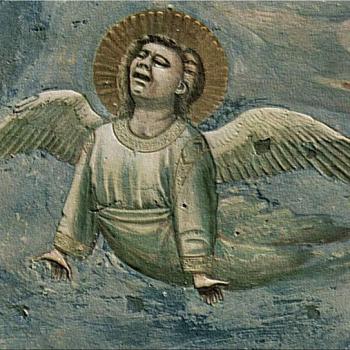Frankly, I'm not sure we are always clear on what we mean, but let me suggest some things that we could mean. First, however, note that I can't find any uses where scripture speaks of a chosen individual. The word describes a people, without necessarily implying anything about the particular individuals who make up that people. Indeed, to repeat, it sometimes describes people who are deep in sin, as in much of the Book of Isaiah.
It seems to me that the most important thing to understand about what it means to be a chosen people is that it means we are under covenant with God. In fact, the chosen people are so much the people of covenant obligation that, in scripture, they are referred to as "the covenant people" more than they are called "the chosen people." Mormons understand their religion and their relationship to God through the idea of covenant.
In the Book of Mormon, King Benjamin says a great deal about the covenant that the chosen people are under (Mosiah 4). Perhaps more than any other prophet, he shows specifically what obligations a covenant with God places on the individuals within it: it obliges those under covenant to be humble, to trust in God, to believe faithfully in the Lord's power to govern the world.
Mormon belief is that the covenant people is made up of individuals who have entered into covenant relation with God through baptism, and baptism is predicated on the expectation that the person baptized has repented of his or her sinful state and humbly asked for forgiveness. Ideally, baptism brings the person into a new relation with the world, a new relation made possible by a new relationship with God.
King Benjamin teaches that the covenant into which we enter at baptism obliges us to pray continually and to remain steadfast in the faith that has been given to us. It obliges us to live peaceably with one another in service to each other and to protect and succor our children, teaching them how to live good lives and providing them the means to do so. Finally, our covenant—our being chosen—is a covenant that we will see to it that the poor are cared for and that we will deal honestly with all people.
But Mormons do not limit our covenant obligation to the covenants of individuals with God, as important as they are. More importantly, we also believe that we are a covenantal community, in covenant relation with God both as families and a church. That is the essence of the idea of the Mormon belief in priesthood authority, eternal marriage, and sealing.
Besides the important covenant work that Benjamin describes, one primary work of the chosen is the work of witnessing or testifying of the Lord. Isaiah 43:10-12 tells us that ancient Israel was a witness of God to the world. And in the same sermon I mentioned earlier, perhaps a baptismal sermon, Peter tells us that when we are baptized we are chosen "that ye should shew forth the praises of him who hath called you out of darkness into his marvellous light" (1 Pet. 2:9). Our baptism should make us witnesses of God.
Ancient Israel stood as a witness to those outside Israel of God's love and mercy, both through the commandments given it and through its experience in being brought out of Egypt and into the Promised Land, an experience repeated when it was taken captive into Babylon and then redeemed from that exile (Is. 41:8-10; 43:10).
Those who lived at the time of Christ stood as witnesses of his love and mercy as it culminated in his life, his suffering and death for us, and his resurrection from the dead. They have left us the gospels in testimony of Jesus Messiah, as well as individual testimonies of him in the epistles.
As we understand the claim that The Church of Jesus Christ of Latter-day Saints is a chosen people, it means that the Church has been called through prophecy to be a modern witness of the same love and mercy that we see in the Old Testament and of the same saving sacrifice that we see in the New.
Thus, the claim to be the true church or the chosen people, audacious as it is, is a claim to be modern Israel.
That is not to the exclusion of the Jews. Mormons do not believe that our covenant with God replaces his covenant with ancient Israel and its descendants. With Paul we recognize that God's covenant with Israel has never been disavowed by God, nor will it be (though it is not obvious what the political implications of that belief are for the state of Israel). So Mormons don't understand our covenant to supersede that of Israel. Rather, we are joined with Israel in covenant relationship to God. We are part of the chosen people.





